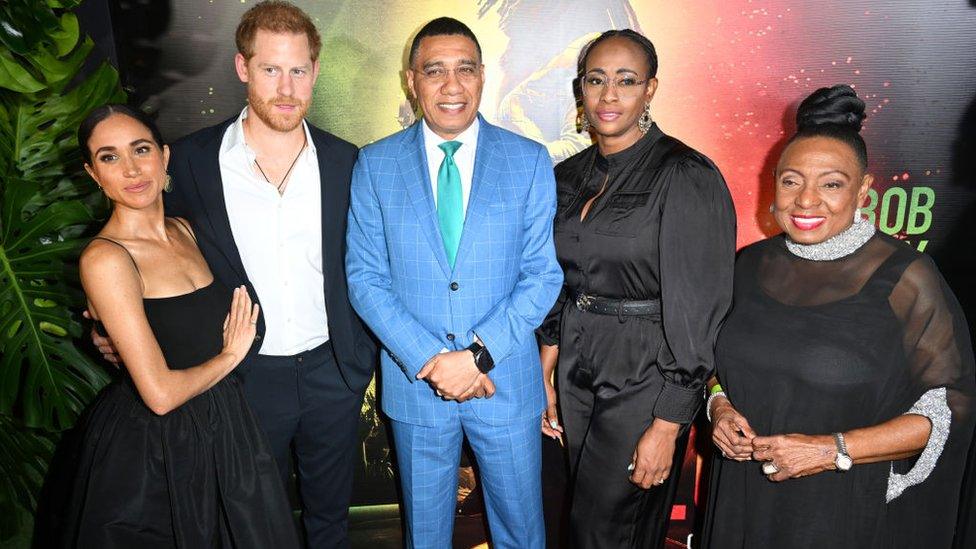Bob Marley: The Hitchin teens who snuck out to see him play
- Published
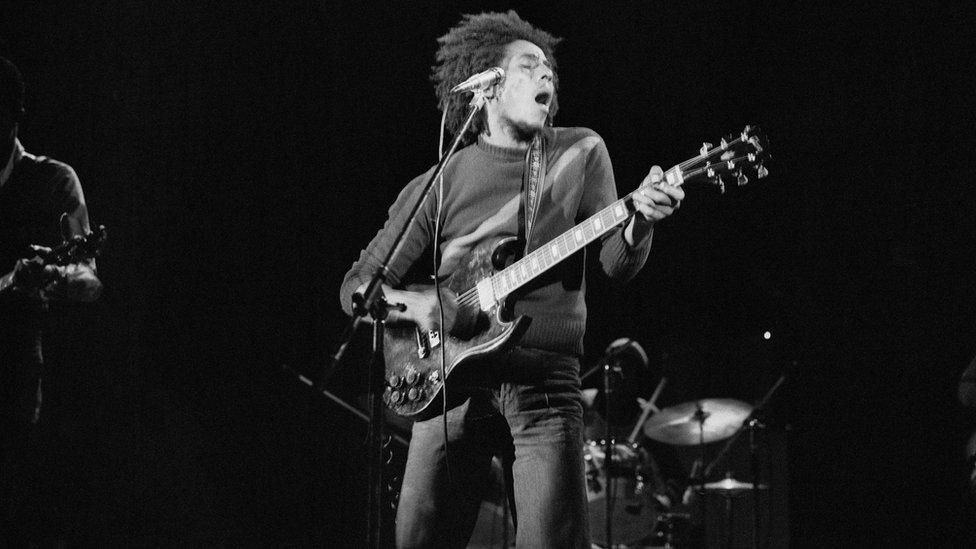
Bob Marley, as a member of The Wailers, played venues in the UK in 1973
People in Hertfordshire who saw Bob Marley on tour in the early 1970s have been recalling his visit as a film about the late reggae superstar arrives on the big screen.
Marley, who was not yet the international music icon celebrated today, played Hitchin Town Hall on 19 May 1973.
Over the previous three weeks Marley, as a member of The Wailers, had been playing for audiences at reggae clubs and universities all over the country.
Nearly 51 years later, the North Herts African and Caribbean Community hosted a special screening of Bob Marley: One Love at Broadway Cinema & Theatre in Letchworth.
Many of those attending had defied their parents to see Marley, who died in 1981, visit their home town.
Sneaking out of the bedroom window
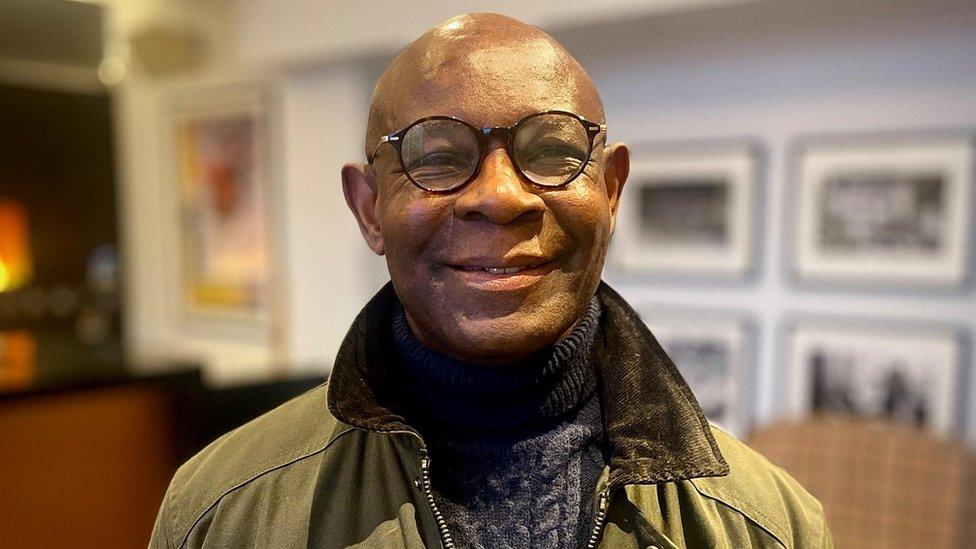
Wilbert snuck out of his window to see "a big star from Jamaica"
Wilbert Myrie moved from Jamaica to Hitchin with his family when he was a child and grew up listening to his dad's collection of reggae and ska music.
"Back then Bob Marley was just coming to his own, he got really big in the late 70s," he said.
His older siblings had tickets to see Marley during his Hitchin visit but the then 13-year-old was told he was not allowed to go.
"My parents said, 'You're not going,' and I said, 'I am.'"

The Wailers toured the UK in 1973 to promote their fifth album Catch a Fire
That night he snuck out of his bedroom window and walked a mile to the venue to watch his first-ever gig.
His memories of that day are strong: "The music was to die for, the power of the music as well.
"In them days you had them big old speakers... I stood in front of them and you could feel yourself getting pushed forward."
Wilbert, now in his 60s, was excited, it was the first time he had seen anybody play live let alone a "big star from Jamaica".
Because of his small size he managed to squeeze to the very front of the gig.
"He [Bob Marley] was very accessible, you could get very close to him, even talk to him if you wanted to."
Shaking Bob Marley's hand
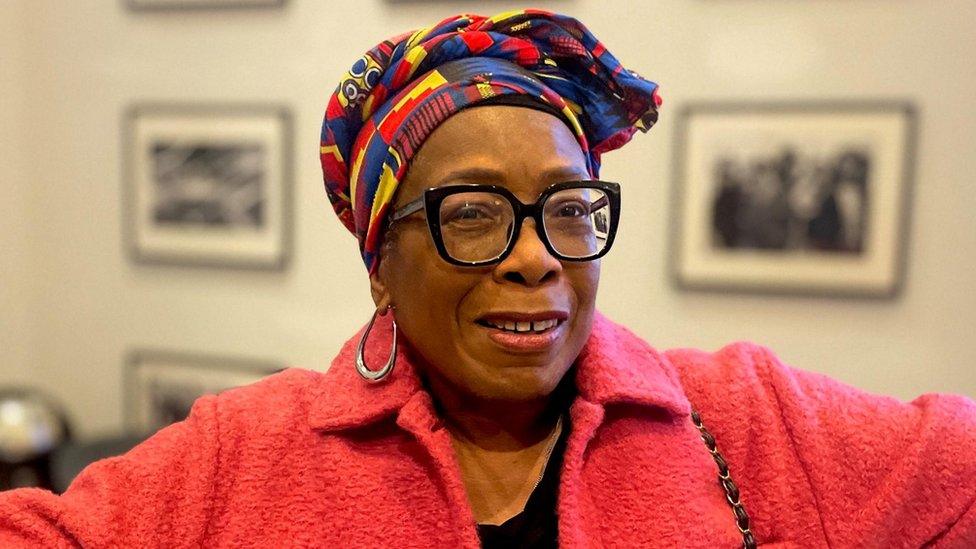
Dorrell Haynes was told not to attend the gig but ended up shaking Bob Marley's hand
Dorrell Haynes, 72, laughs when she thinks of attending that 1973 gig: "Would you believe I went up and shook his hand?"
The then 22-year-old had defied her parents' instructions to not attend the event but her brother, Karl Simpson, was one of the gig's promoters and helped sneak her into the town hall.
"I was excited because I was there when I shouldn't be, I thought if my mum and dad found out I would be in trouble," she said.
"The thing that stood out about him was he was a mixed-race young man who took that on wholeheartedly."
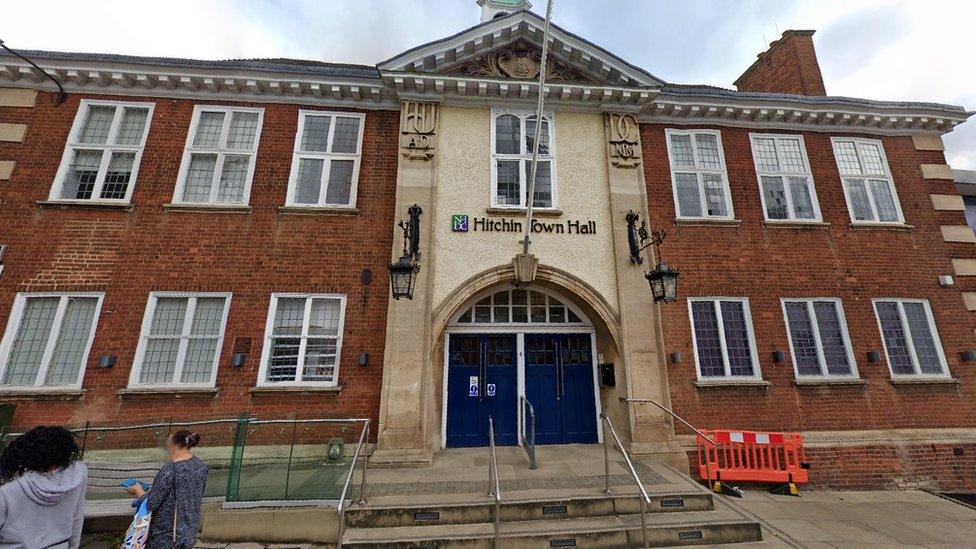
Hitchin Town Hall hosted The Wailers on 19 May 1973
Dorrell said that at the time the event was "just another gig" as Marley was still not a big star.
"It was a really good show but I did not consider it to be anything special."
A perk of being related to the promoter meant she was able to get close to Marley after the show.
She said: "You were overcome at that sort of age, so I shook his hand and ran away.
"He's quite a tiny bloke and I remember feeling the callouses on his fingers."
Opening for Bob Marley
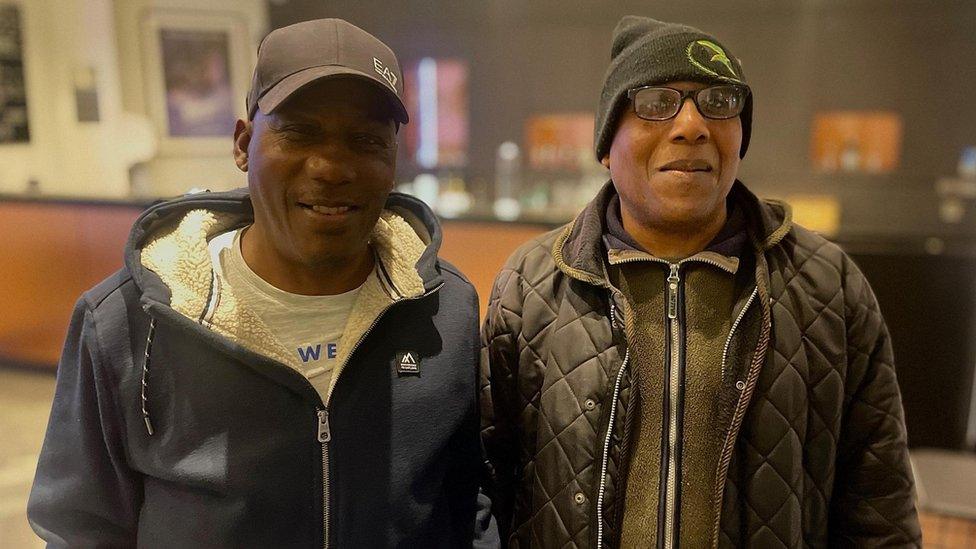
Winston and Kenneth Campbell played a sound system before The Wailers took to the stage
Two brothers, Winston, 71, and Kenneth Campbell, 68, opened for The Wailers on that night over 50 years ago.
At the time they ran a well-known sound system in the town and were invited to help promote and perform at the event.
When Winston, then aged 20, arrived at the venue he could only remember how he had attended Sunday school there as a child.
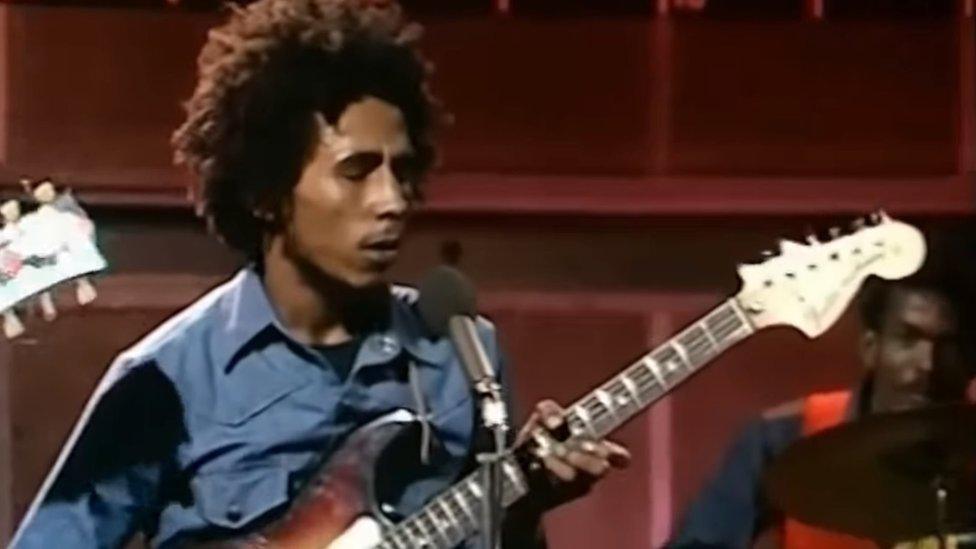
Bob Marley performing on the BBC's Old Grey Whistle Test in 1973
The brothers remember it being a popular event as the band had appeared on the BBC's Old Grey Whistle Test a couple of weeks prior.
They recall there were about 250 people in the audience.
Kenneth said: "Bob Marley was seen in the black community as a more commercial artist... I had no idea he would get that big."
He added that Marley had not quite landed on his "iconic identity at the time".
"When he appeared at Hitchin he didn't have dreadlocks, he had a sort of afro."
Neither brother were big Marley fans at the time, but looking back Winston said he is proud to have been involved in the event.
He said: "My only claim to fame is being on the same bill as Bob Marley."

Follow East of England news on Facebook, external, Instagram, external and X, external. Got a story? Email eastofenglandnews@bbc.co.uk, external or WhatsApp 0800 169 1830
- Published14 February 2024

- Published13 February 2024

- Published26 January 2024

- Published24 January 2024
